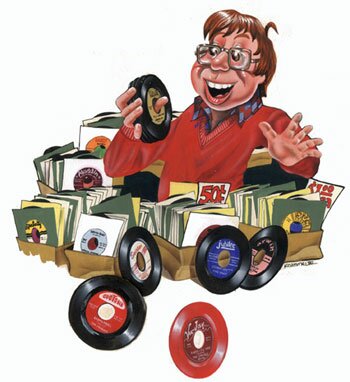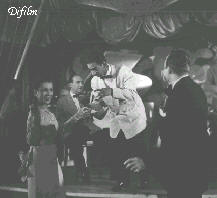
Whatever the actual reason for the break up of the Les Loups duo early 1931 Alemán had achieved a crucial experience from his partnership with Lobo. He had learned how to work out a varied accompaniment in interplay with another skilled musician, further he had experienced that the success of a musical arrangement depends on all involved in the performance. This may seem a basic fact, but the understanding of it forms the fundamental concept of actually playing and performing music in a consciensious way. – In an interview with Tómas Mooney late in life Alemán said regarding his formative musical background: “I always liked Brazilian music, but I think even then I liked American harmony better”. Mooney’s comment is crucial: “This experience is at the basis of Alemán’s style. The rhytmic looseness and kind of percussiveness in his jazz solos stems from Brazil (…) his alphabet was Brazilian. Allthough he kept playing Latin music up to the end, he never jazzed it, but was always very careful to maintain each genre’s authenticity” (quoted from Tómas Mooney’s article, Oscar Alemán: Swing Guitarist, printed in Jazz Journal International, Vol.35, No 4&5 (1982)). Mooney’s point of view is that Alemán’s musical alphabet is Brazilian, and this may seem obvious – though seldom mentioned or taken seriously – from the background of Alemán’s formative years in Santos, Brazil and from his partnership with Bueno Lobo. On the other hand, Alemán says in the quoted interview that he even then liked American harmony better, which points to his later involvment with jazz. There may seem to be a sudden tension between Brazil/Latin musical language and American harmony in Alemán’s own saying, and if this is a correct and liable interpretation of his quoted statement, this may help explaining why Alemán never had the possibility to record his own composition ‘OA 1926’ during his co-work with Lobo. This composition that Alemán had elaboreted as a solo piece for cavaquinho has a form of a ragtime piece more than i.e. a Brazilian choro, the musical form most often linked to the use of a cavaquinho. However, to support my point of view regarding a tension between Brazilian and American music tradition in Alemán’s concept, some sources mention that Lobo would prevent Oscar from exploring his beginning interest in jazz during their partnership. If this is true, then this may also help explaining the split between Alemán and Lobo in 1931. – When Alemán and Lobo parted, Alemán would soon be involved with jazz on the Parisian music scene at the same time he was keeping a job with Josephine Baker as a leading member of the Baker Boys, beeing a musical director of the band on her tours of Europe and North Africa and further left solo spots for showing off his abilities as both a musican and a showman. The shows with the Baker troupe may have been disciplined and planned in details, while Alemán’s meetings with the American jazz in Paris may have been on a less formal scale, giving him a chance to ‘cut loose’ and experience the possibilities of jazz harmony and improvisation. This helped him to find his own creative capacity as a musician and finally liberated him from the rigorous scheme of only playing planned and arranged music. If you listen to the later recordings by Bueno Lobo after the break up of the Les Loups, you’ll realize he continued to use the same concept in his remaining career in Brazil. Not so in Alemán’s case, he continued to explore new possibilities in his own musical language after joining the Parisian jazz scene, he went in another direction than the one imposed by Lobo. – Late in life Alemán was asked what became of Lobo after the break up of Les Loups. According to the taped interview that is beeing played as a kind of a coda to the story of Alemán in Hernan Gaffet’s documentary, ‘Una vida con Swing’ (2002), Alemán says that Lobo returned to Brazil, where he committed suicide in a public place. Alemán expresses a feeling of guilt and lets us know he sees himself as the cause of Lobo’s suicide, adding that he had been the cause of both his father’s and stepfather’s death. Leaving the obvious Freudian interpretation to the reader, you may also interpretate this statement as a comment to the career of Lobo after his returning to Brazil, where he would spend more years as a staff musician at radio – a public place, you may say. Beeing a studio musician at radio was a tough job, only leaving little place and time for improvisation and personal creativity outside the rigorous scales of planned work. Thus, Alemán was perhaps just saying that Lobo ‘comitted suicide’ as an artist and skilled music during his Brazilian career as a studio musician. Our suggestions and speculations about Lobo’s fate after his returning to Brazil may be less important in the light of such an explanation.
Jo
 This weblog will give you information about the "El Redescubrimiento de Oscar Aleman" project, the "Rediscovering of Oscar Aleman" project.
Oscar Aleman ( 1909 - 1980 )was an Argentinean jazz guitar player, entertainer and showman, born in Argentina, lived in Europe (1930s)and returned to Argentina ( 1940 - 1980 ).
He was one of the best jazz guitar players of his time.
This weblog will give you information about the "El Redescubrimiento de Oscar Aleman" project, the "Rediscovering of Oscar Aleman" project.
Oscar Aleman ( 1909 - 1980 )was an Argentinean jazz guitar player, entertainer and showman, born in Argentina, lived in Europe (1930s)and returned to Argentina ( 1940 - 1980 ).
He was one of the best jazz guitar players of his time.













